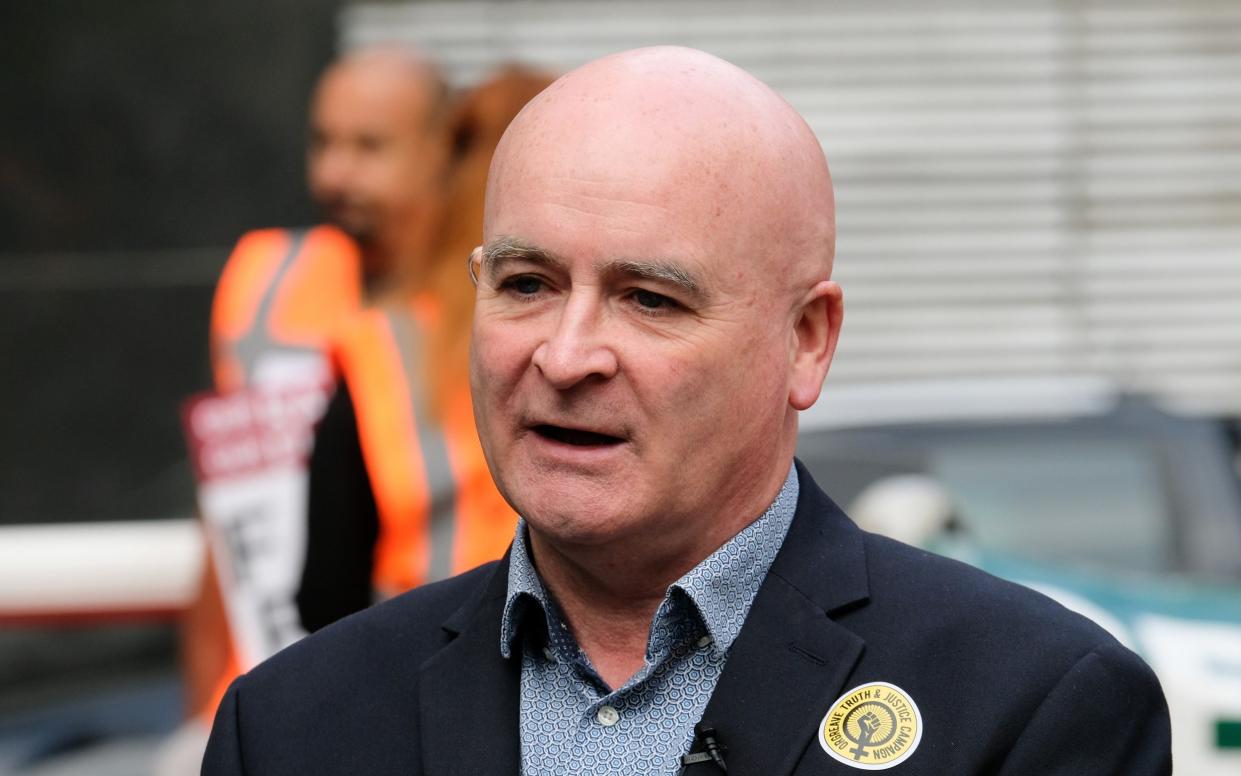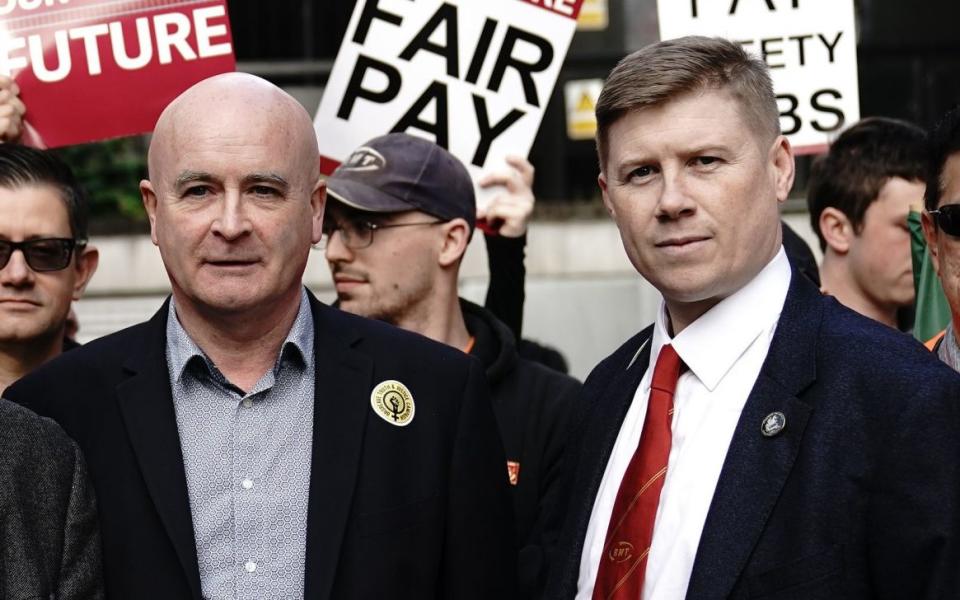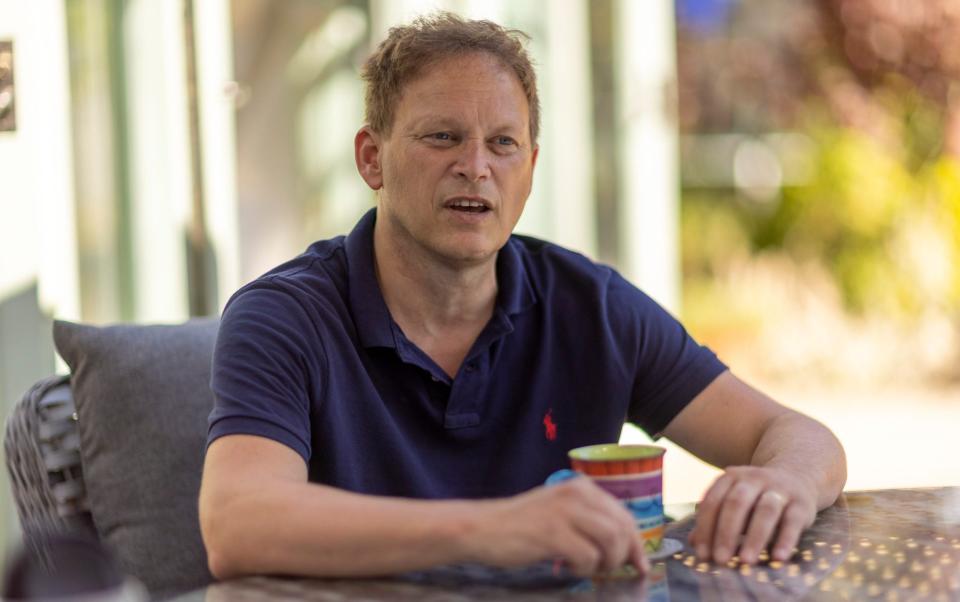Mick Lynch: EU influence provoked the Russian invasion

Rail union baron Mick Lynch has suggested that Ukrainians “playing with Nazi imagery” and the influence of the EU provoked “trouble” in the invaded country.
Asked about Russian aggression, the general secretary of the RMT appeared to partly place the blame on the EU and “corrupt politicians in Ukraine”.
It comes ahead of fresh disruption on the railways as Aslef train drivers strike at 10 rail companies followed by RMT strikes next Thursday and Saturday involving 40,000 workers including 20,000 from Network Rail and the remainder from 14 train companies.
Mr Lynch’s claims about the role of Nazi or neo-Nazi groups in Ukraine mirror that of the Kremlin despite the RMT leader and his union condemning the invasion in March and calling for the Russian army to withdraw.
His comments came in an interview in the New Statesman where he was asked whether Brexit had weakened the EU in the face of Russian aggression and the rise of China.
“The EU also provoked a lot of trouble in Ukraine. It was all about being pro-EU and all the rest of it,” he said, referring to the pro-EU Maidan revolution in Ukraine in 2014.
“There were a lot of corrupt politicians in Ukraine. And while they were doing that, there were an awful lot of people [in Ukraine] playing with Nazi imagery and going back to the [Second World] war, and all that. So, it’s not just that this stuff has sprung from one place.”

The RMT, and particularly its assistant general secretary Eddie Dempsey, have long-standing sympathies for the pro-Putin separatists who have been fighting government forces in the east of the country for almost a decade.
Dempsey visited the Donbas region of Ukraine in 2015, where he posed for a picture with Aleksey Mozgovoy, leader of the pro-Russian “Ghost Brigade” of rebels in the self-proclaimed Luhansk People’s Republic.
Mr Dempsey was also one of the most high-profile signatories to a Stop the War Coalition statement that criticised Nato for showing “disdain for Russian concerns” in Ukraine at the start of the war.
Brendan Kelly, an RMT regional organiser for South Wales and South West England, was also reported in May to have spouted Kremlin propaganda about the invasion.
Although he said the Ukrainian government was not fascist he claimed that “what they have done is unleash, or been prepared to unleash, some of these fascist groups to become embedded within state forces”.
In his New Statesman interview, Mr Lynch was also sceptical of the prevailing narrative about China. “I don’t know if what I’m told by The Telegraph and by American policy writers [about China] is true,” he said.
“We were told Saddam Hussein was the greatest threat to the Western world that there had ever been … what he actually had was a very oppressive regime against his own people and a collection of pots and boilers that he’d strung together as so-called Scud missiles.
“We were told all that by the same analysts that are telling us now that China wants to commit all of this aggression against all of these people. We should stop being so belligerent towards countries.”

In an interview with The Telegraph on the eve of Saturday’s rail strikes, Grant Shapps, the Transport Secretary, accused the union bosses of being motivated by “outmoded class war”.
“The union bosses are motivated by some outmoded class war that hankers after days that have gone. Much to their upset, they’re not bringing the country to a standstill because people are able to work from home,” said Mr Shapps.
“The world has changed. It’s moved on. These union bosses are dinosaurs who haven’t realised that’s the case.”
He criticised the refusal of the unions to modernise archaic working practices in return for the eight per cent pay rise the RMT had rejected without putting it to its members.
“For years and years, successive governments and secretaries of state have just capitulated rather than get the modernisation of the railway done.
“I simply will not capitulate on this. We absolutely have to modernise the railways for the passengers. It is ludicrous that we’re operating under contracts, which go back to precedents set in the 50s, 60s and 70s which completely miss out on the Thatcher reforms entirely.
He pledged to crack down on union strike action with a menu of 16 proposals for the incoming prime minister, including a ban on strikes by different unions in the same workplace within a set period.
Correction: The headline has been amended to reflect that Mr Lynch’s reference to “provoked a lot of trouble” was primarily directed at the EU. We are happy to correct the record.

 Yahoo News
Yahoo News 
